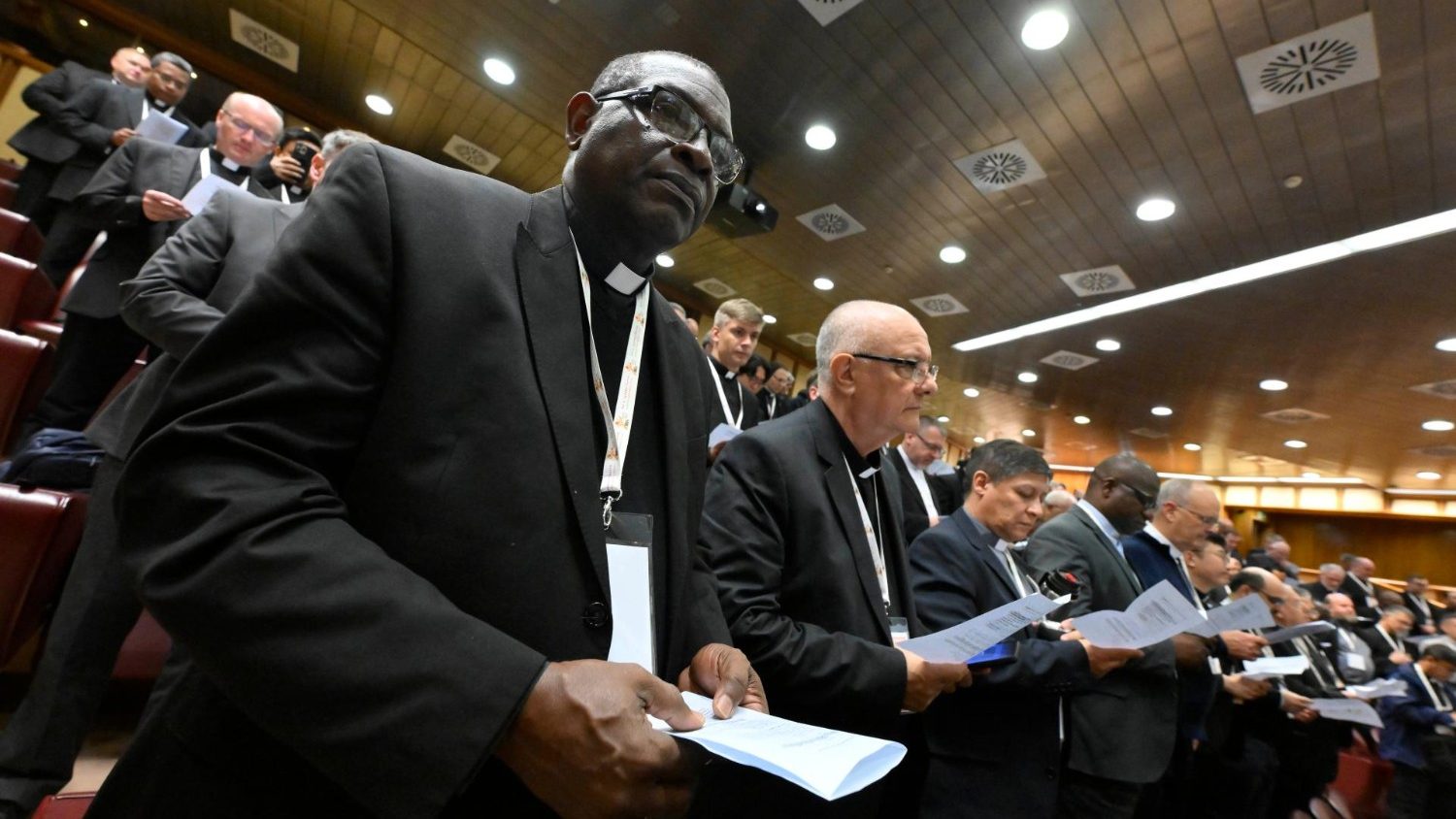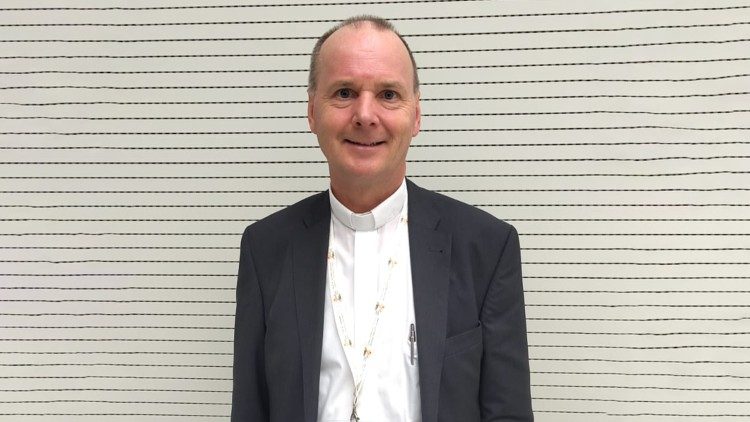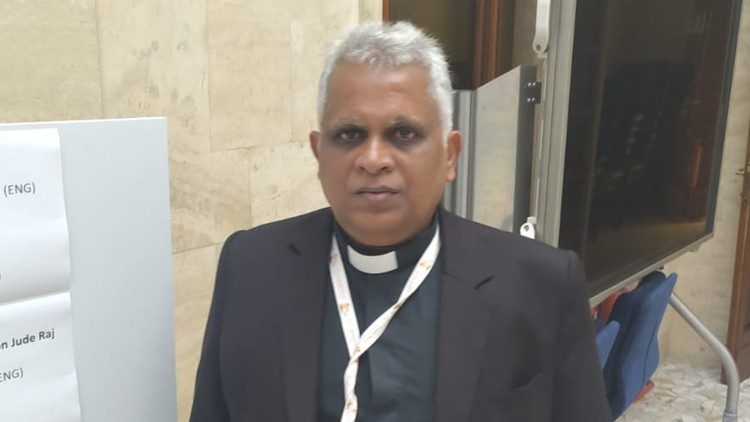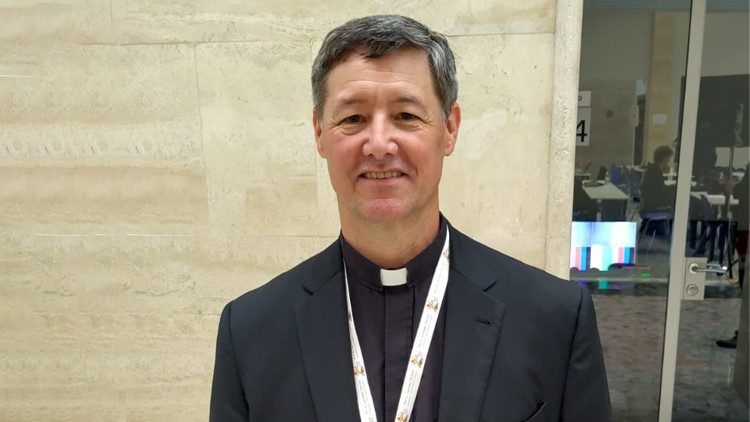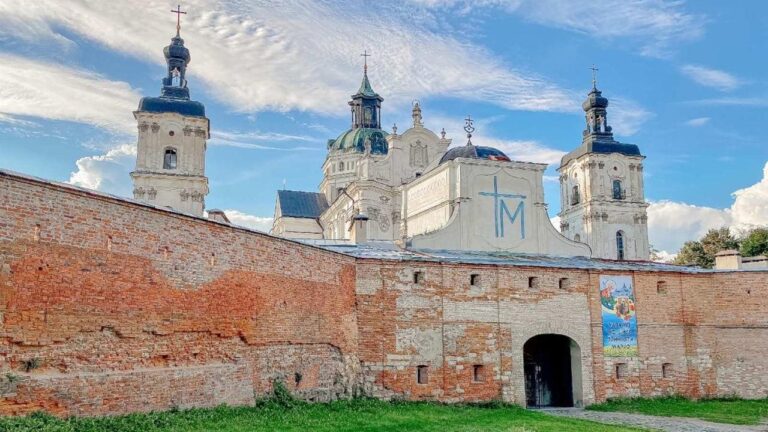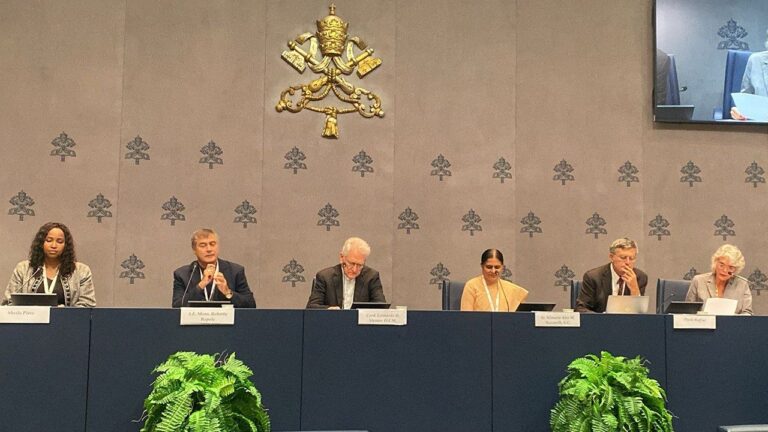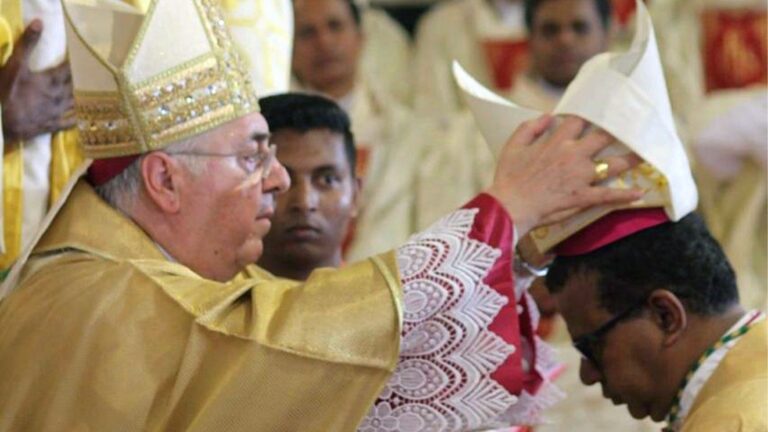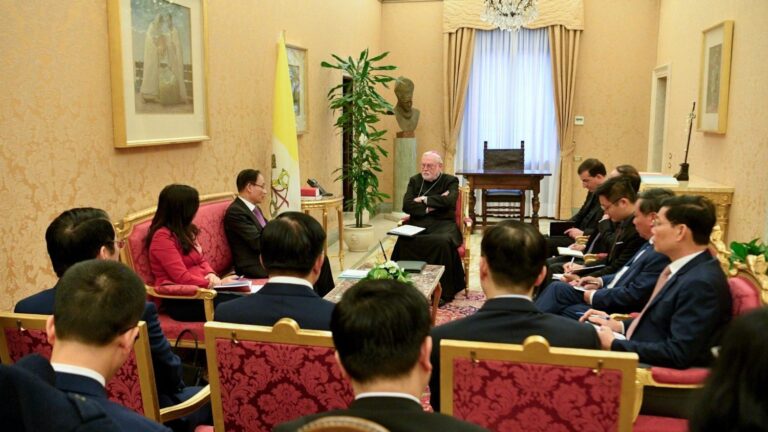After Rome meeting, parish priests head home as ‘missionaries of synodality’
Vatican news
Vatican News spoke to three of the 300 clergy gathered in Rome this week for a conference titled “Parishers for the Synod.”
By Joseph Tulloch
This week, some 300 priests gathered on the outskirts of Rome to discuss how to implement synodality at the local level.
On Thursday morning, they met with Pope Francis, sharing their visions and hopes for synodality in the different communities they serve around the world.
Afterward, several of them spoke to Vatican News about their experiences during the week and their new task of returning to their dioceses as “missionaries of synodality.”
Synodality: the basics
For many Catholics, synodality remains an abstract concept. It is often explained as meaning something like “traveling together”, after the two Greek words (syn meaning “with”, and hodos meaning “journey”) from which the word “synod” derives.
Speaking to Vatican News, Father Stefan Ulz, of the Austrian diocese of Graz-Seckau, expanded on this definition.
Synodality, he says, means recognizing that “the Holy Spirit speaks through everyone, not just through the Pope, bishops and priests.”
“Even I, as a priest,” he continues, “I can discover many things. It's not my job to just tell people what's right. The Holy Spirit can surprise me through other people.
Geographic diversity
One of the things that emerged from the international meeting was the diversity of the contours that synodality takes in different parts of the world.
For Father Jude Raj Fernando, priest of the Archdiocese of Colombo, Sri Lanka, synodality means that the clergy must be close to those who suffer.
“If you look at Sri Lanka,” he said, “we are going through an economic crisis. So as a parish we must be sensitive to the needs of the people.
Father Fernando also highlighted the impact of the 2019 Easter attacks in the country, which targeted churches and luxury hotels, leaving nearly 300 people dead.
The Church, he said, will continue to “walk with the people until we achieve justice and peace.”
On the other hand, in parts of the world where religious disaffiliation is a major concern, synodality is sometimes seen as a way to bring the disaffected back to the Church.
Father Clint Ressler of the US Archdiocese of Galveston-Houston, for example, noted that some of his parishioners view synodality as “the way we are going to bring the faith to their children and grandchildren.”
“There is a pain that motivates some in my ward,” he added, “and that means: We need to consider a new way of being a church. »
Synodal missionaries
Introducing the priests to the journalists who would then interview them, Mgr Luis Marín de San Martín, responsible for the synod, stressed that “reform always comes from the base”.
This also seems to be the belief of Pope Francis. He is counting on these priests to return to their dioceses of origin and promote synodality among their ecclesiastical colleagues.
Father Fernando, for his part, is ready. “This is my mission,” he said. “I am delighted to convey this message to my people, to my bishop, to my brother priests.”
Vatican news
sc
